Why do some people consider liberal arts and humanities degrees useless?

Some people consider liberal arts and humanities degrees useless because these degrees often don’t lead to a clear career path. Or, if they do lead to clear career paths, those careers are often not in high demand or they, on average, don’t pay as much as other fields, usually in relationship to science, technology, engineering and math fields. [1] [2]
For example, if someone studies computer science, then there are a few specific career paths which that student is likely pursuing, such as programming and cyber security. Currently, these types of careers are in high demand and/or have high pay.[3] [4]
For someone studying English, it isn’t as clear. There are a wide number of careers which apply skills which would be developed while studying English as an undergraduate student. Some careers are teaching, various types of writing such as creative or technical writing, various types of editing such as copy editing and content editing, along with proofreading and other publishing careers.
In addition, there is a diverse set of options for an English student which are not directly related to the field of English. Some of these include careers in the medical field, politics, careers in law and also careers in technology fields. [5]
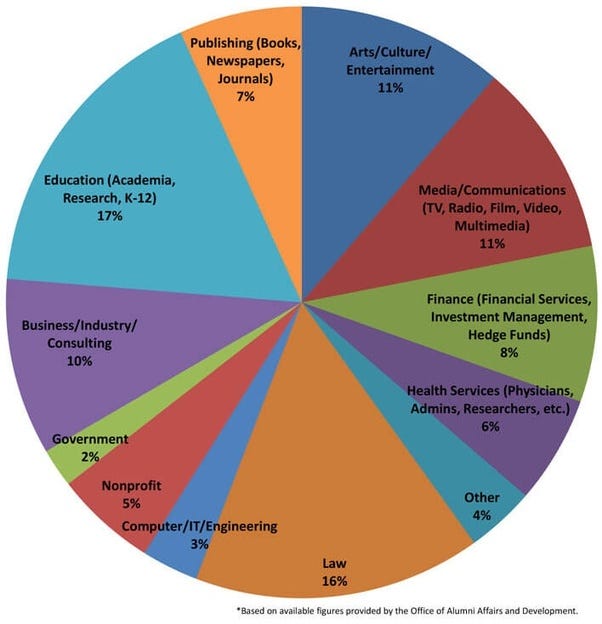
That being said, STEM degrees also offer various opportunities outside of the specific STEM field of study. I think the difference is that many STEM majors go into college set on graduating and becoming a programmer, engineer or other STEM-related fields while many liberal arts/humanities majors go into college with a more diverse list of careers of interest.
Are liberal arts and humanities degrees useless?
What is a useless degree?
I would define a useless degree as one which fails to develop marketable skills or provide professional opportunities for a student. This means that a degree could be useless for one student but not for others. In other words, it depends on the student’s perspective and goals.
College is about building connections, developing skills and pursuing opportunities. More and more, the job market is evolving, and many of the students currently enrolled in college will likely end up in jobs not related to their majors, or even jobs which don’t require a degree.
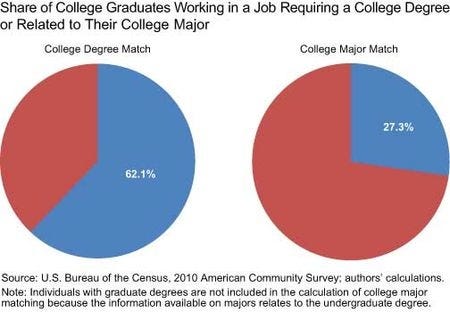
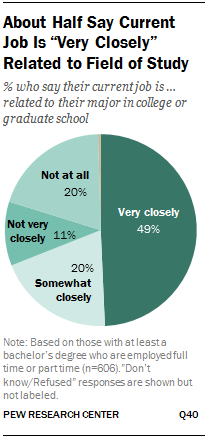
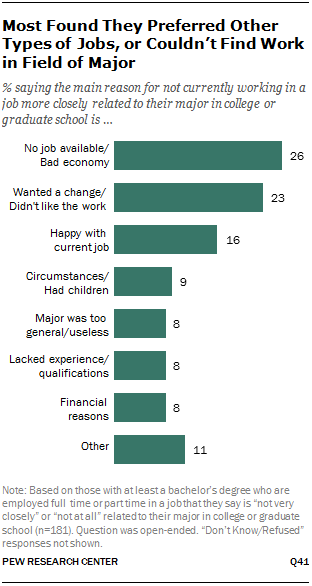
Many jobs don’t require a specific degree, but they require a degree nonetheless. Many liberal arts majors will have opportunities which are not available to people with less education than them just because those liberal arts graduates have a college degree, regardless if they are able to find a job directly related to the field of study.
It is projected that the number of jobs requiring postsecondary education will be 65 percent by 2020. Having any education after high school is something more people in the workforce will have to have in order to keep up with the changing job market.
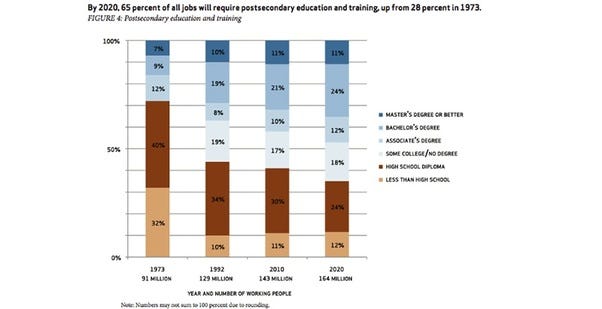
Everyone is not able to major in a STEM field, and then also get a job related to their major. In fact, it seems that even though people talk about STEM being the future, they fail to mention that certain STEM careers do not have as high a demand as the supply of people studying that field.
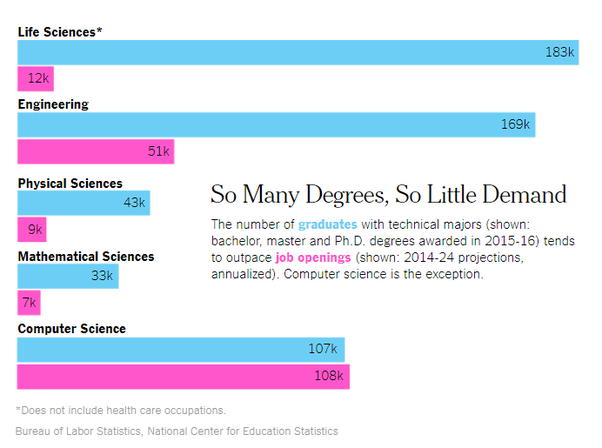
Professional opportunities while studying liberal arts/humanities
Anecdotally, majoring in English has directly helped me to gain valuable experience in the field. The summer before my sophomore year, I received an email which was sent to all English majors, informing me of a copy-editing internship opportunity at The Vidette, my university’s newspaper. I applied, had an interview and then I started the unpaid internship. I did that for two semesters, then in the spring of 2019, I was informed that there was an opportunity for me to apply for a paid position. I applied and since May 2019 I have been one of The Vidette’s two Night Editors.
I have also received several emails about other internships and entry-level positions. Technical and creative writing, for example. These are opportunities to gain experience in fields I am interested in which I know about solely because of the major I chose at my university.
College also offers opportunities to connect with professionals in other fields of interest. There are people in the film industry who teach courses, for example. Published authors teach courses at different universities.
Some of these courses may only admit students in the specific major, and those students will gain insight and build a great professional connection.
Value of liberal arts/humanities degrees
Are liberal arts and humanities degrees useless? It depends on the career goals of the student. It is important to look at skills which are appealing to employers , and also to develop skills which are not likely to become obsolete due to evolving technology in the near future.
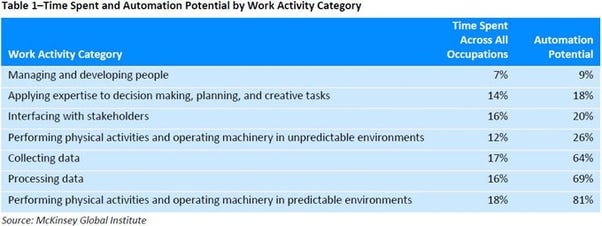
New graduates joining the workforce will be facing different challenges than previous generations. Many of these students will need to adapt and maintain a wide variety of skills and be flexible professionally as they will have to deal with increasing competition from machines and other people joining the workforce.
For students who are interested in studying a liberal arts/humanities field, there are multiple options to develop hard skills which are currently in high demand:
- Associate degree/Minors/Double major — Choosing to study another field while pursuing an education in a liberal arts/humanities subject can develop hard skills which will create a more appealing resume.
- Internships/entry-level jobs — Having experience in a field is often more important than having a degree in that field. Being able to get experience in a field to professionally develop hard skills is a great way to prepare for future careers.
College should not be really viewed as job training. Just because someone earns a degree in a certain field does not guarantee a career in that field.
If postsecondary education is a financially viable option for someone, it is a great way to build professional connects and find opportunities which may have otherwise not been available.
Regardless of the chosen undergraduate major, effort should be taken to develop marketable skills and to gain experience in fields of professional interest to maximize the effectiveness of postsecondary education.
Liberal arts/humanities degrees (or any degree) are only useless if the person who holds that degree fails to make it useful.
Footnotes
[1] Chart: Which College Degrees Get the Highest Salaries?
[2] The College Majors With The Highest Salaries — And The Best Prospects
[3] Information Security Analysts
[5] Where do college graduates work?
Originally published on Quora. View my other posts at my profile.
Comments
Post a Comment